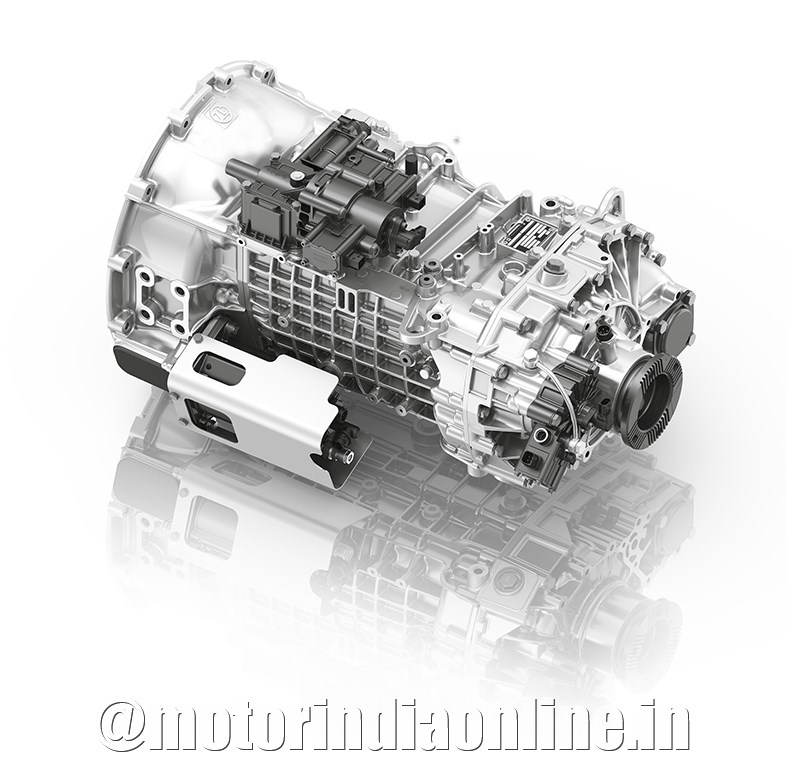The virus-triggered pandemic has been an experience from which the automotive industry is now trying to emerge with new strategies in place. In this interview with Rajesh Rajgor, Suresh K.V., President, ZF India, elaborates about how their company dealt with the lockdowns and how restarting operations with maximum care will soon bring operations back to normal

How has ZF India dealt with the virus pandemic?
It is a known fact that India was one of the last countries to get into this huge infection issue of the corona virus. Somewhere in January-February 2020, the moment we got the news from our company in China, we took actions which were important at that point and created much-needed awareness within the organisation. I remember that in the last week of January itself we had sanitizers in almost all the meeting rooms. We also started cleaning our meeting rooms and regularly started sanitizing our hands because that was the first set of information which came from China. ZF had set up a task force globally and India was part of it so that we started getting relevant information in time about the guidelines we needed to follow.
This helped us tremendously in ensuring that infection from person to person was prevented. We could share this information with all our plants and not only our own plants but also with our joint venture partners so that all of them could gain from the experience which ZF had across the world. We had already started working on ramping down operations because we saw this coming. Therefore, honestly speaking, our global experience and the learnings shared from other regions helped us a lot to ensure that our people understood what needed to be done and what was to be avoided.
What has been your experience of the transition to BS VI emission norms during the lockdown phase?
As far as ZF products are concerned, we were already BS VI-compliant. Thus, any direct impact on the set of products we have in the Indian market was minimal. Having said so, the impact was mainly through an indirect path. If you look at what happened with the OEMs, right from December to January, the supply chain got affected because of the infection in China and therefore a majority of the customers had difficulties in getting parts from the different players present globally and especially in cases where they were sourced from China. Because of the mismatch of inventory, at the OEMS end, the demand started dropping. If you look at it from March, it was not a direct BS IV to BS VI impact but it was more so because the OEMs struggled to get parts from various part of the world.

What about restarting operations?
We were in constant touch with all our employees and utilised the lockdown period to build up some skill training programs for employees. Once we started getting information in the second half of April about the possibility of reopening of our plants, we started preparing for such a scenario. To create a comprehensive restart plan, we had inputs not only from ZF India but also from ZF Global, the World Health Organization and the Government of India. In the factory, we made sure that temperature monitoring was made available along with hands-free, pedal-enabled hand sanitizers. We also kept a check on the travel history of all our employees.
The initial few days were spent in cleaning the plants and making sure that the task of completing the unfinished parts was taken up on a priority. This was to ensure a hassle-free return to normalcy. We got in touch with our customers and asked them to inform us as to what the schedules would be from the best of their forecasts. We also accepted the fact that the customers were also going through a similar exercise and so we needed to give them some time to understand as to what their demand would be. Another aspect we focused on was exports. We are now ensuring that all our obligations and commitments are fulfilled, which will also help us to slowly and steadily get back to the pre-pandemic production levels.
What is your outlook for the near future?
One of the biggest learnings that will help not only us but the entire industry to have a brighter outlook ahead is that we need to reduce the supply chain risks. Everyone will have to make sure we are not dependent on one particular region, whether it is India or China, because it is important that we reduce the risks associated with supply chains. On the government’s side, there is an assurance about covering the entire gamut of the industry under various stimulus packages. The intent is good and the packages are well-designed. The MSMEs and others are witnessing the effects on the ground level. As far as the outlook is concerned, we are all looking forward to the September-October festival season. This period should certainly be the first instance when we may see revival to a great extent.